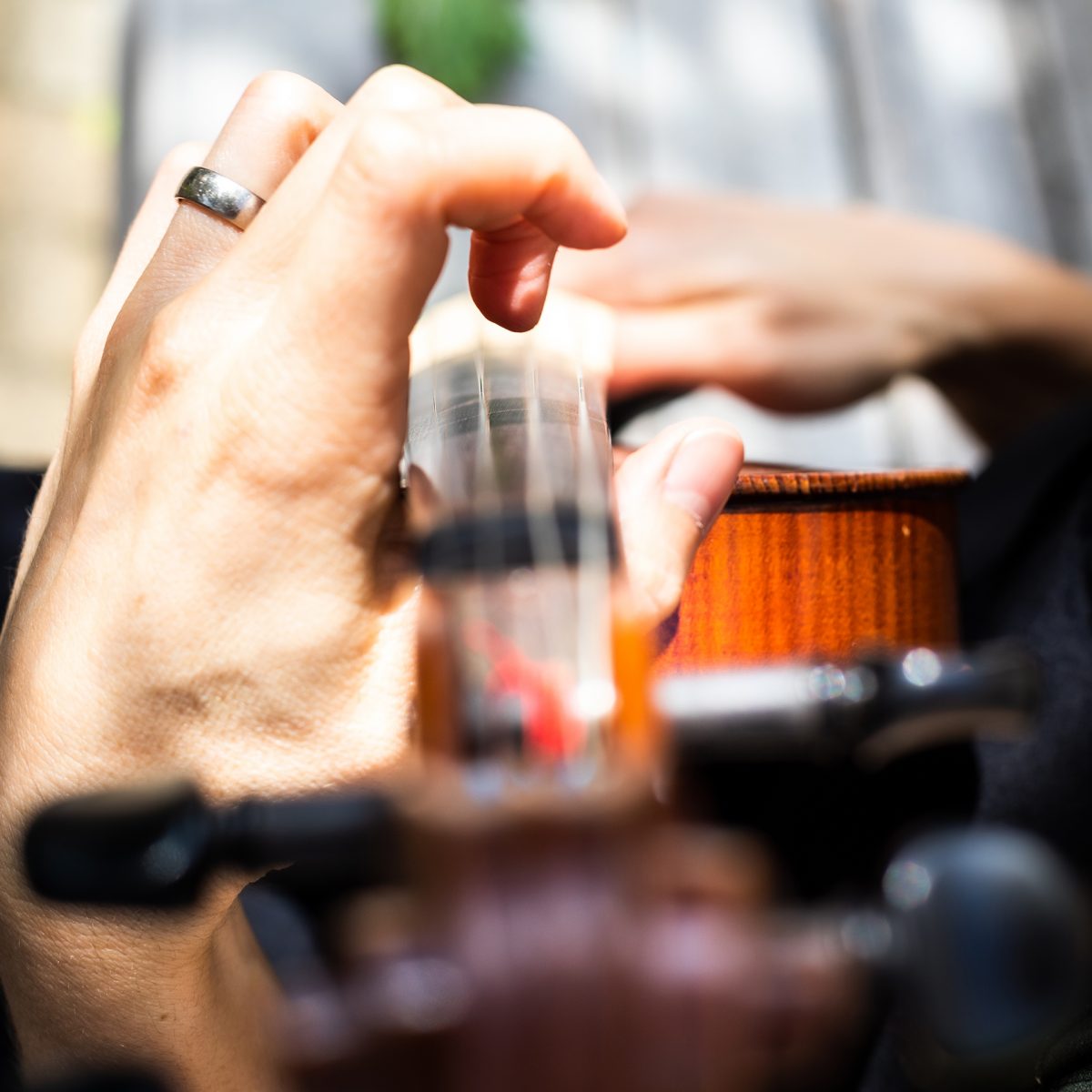Music is Freedom
Music is also an outlet for Maximilian Langheinrich and Christoph Dittus: “Getting out of everyday life, consciously decoupling and clearing your head” is important for the researcher and the industrial designer, who play together in the old-school hardcore band The Raw Deals. But music is even more than that, they say: “If I just want to let off steam, I could also play tennis or go running,” Christoph Dittus explains: “With music, I can go further.” When the two write new songs, they put their thoughts in order, they don’t play anything predetermined, but create something new and transfer what moves them into an artistic work – regardless of whether that’s self-reflective thought processes or social debates.
Maximilian Langheinrich has always made music and learned to play the recorder, clarinet, saxophone and guitar; Christoph Dittus is self-taught and only began to teach himself guitar and bass in the band. As different as the musical paths of the two are, as strong is the community through the band and the shared experience. That’s probably the most important thing for the two of them: because it’s on stage that their music is created anew every time – in contact with the audience, in communication: “Music is something very social.”
Maximilian Langheinrich and Christoph Dittus know each other from their shared school days at a Dachau high school, and the music they share helps them to stay in touch despite their different paths in life. Maximilian Langheinrich (Master Geodesy and Geoinformation 2016) studied in Munich, but only came to TUM for his master’s degree. He wrote his master’s thesis at the German Aerospace Center (DLR), where he has been employed ever since and is doing his doctorate on atmospheric correction on the side. Christoph Dittus (Master Industrial Design 2010) did his Bachelor’s degree in Schwäbisch Gmünd and returned to the Munich area for his Master’s degree at TUM. After graduating, he started his own business as an industrial designer and develops designs for both capital and consumer goods, e.g. construction vehicles, blood pressure monitors or bicycles.

